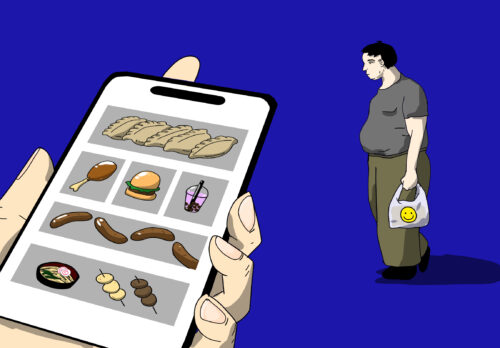‘The right timing, the right place, the right people’ — Phrase of the Week
China's hottest new city is a combination of geography, timing, people, and a bit of luck.

Our Phrase of the Week is: The right timing, the right place, the right people (天时地利人和 tiānshí dìlì rénhé).
The context
A city in central Shandong Province has become a popular tourist destination and online sensation in the last month, thanks to its barbecue.
With a population of nearly 6 million, the northern city of Zibo is mainly known for its heavy manufacturing industries. Decades ago, it was the province’s second-largest city, and an important industrial hub.
But in recent years, the city has languished. That was until March this year, when young people suddenly began flocking there to enjoy Zibo barbecue (淄博烧烤 zībó shāokǎo):
The Zibo barbecue set of “big meat skewers + small pancakes + spring onions,” coupled with the sense of ritual of “one table, one oven, one pancake,” has made this small city, which has been silent for a long time, become popular again.
由“大肉串+小饼+小葱”组成的淄博烧烤,再加上“一桌一炉一卷饼”的仪式感,让这座沉寂已久的小城市,重新火了起来。
Yóu “dà ròuchuàn + xiǎobǐng + xiǎocōng” zǔchéng de zībó shāokǎo, zài jiā shàng “yìzhuō yìlú yìjuǎnbǐng” de yíshìgǎn, ràng zhè zuò chénjì yǐjiǔ de xiǎo chéngshì, chóngxīn huǒle qǐlái.
In addition to enjoying the food, young travelers take a day or two to see the historical sites, scenic spots, and even places in the city popular with cosplayers.
This overnight sensation is not down to luck; it’s the outcome of an intentional marketing push by the city’s government, which brings us our Phrase of the Week:
Zibo barbecue is an excellent example of having a marketing strategy based on the right timing, the right place, the right people. Marketing needs to always adapt to local conditions, and it also needs to be flexible. The popularity of Zibo barbecue cannot be copied.
淄博烧烤是天时地利人和营销的绝佳体现,营销需要千变万化因地制宜,也需要举一反三灵活巧用,淄博烧烤的火爆不能复制。
Zībó shāokǎo shì tiānshí dìlì rénhé yíngxiāo de juéjiā tǐxiàn, yíngxiāo xūyào qiānbiànwànhuà yīndìzhìyí, yě xūyào jǔyīfǎnsān línghuóqiǎoyòng, zībó shāokǎo de huǒbào bùnéng fùzhì.
What it means
The phrase the right timing, the right place, the right people is an idiom that first appeared in Mencius Selection, Part II (孟子·公孙丑下篇 mèngzǐ gōngsūnchǒu xià piān). Mencius is one of China’s most important philosophers. He lived between 372 B.C.E. and 289 B.C.E.
The direct translation of the phrase is: “favorable weather, conducive geographical conditions, harmony of people.” The full line is:
The weather is not as important as the geography, and the geography is not as important as the people.
天时不如地利,地利不如人和。
Tiānshí bùrú dìlì, dìlì bùrú rén hé.
A similar reference also appears in Sun Bin’s Art of War (孙膑兵法 sūn bìn bīngfǎ). Sun Bin was a military strategist who lived during the Warring States period (481–221 B.C.E.), and is believed to be a descendant of Sun Tzu (孙子 Sūn Zi), the author of the earlier Art of War.
The right timing, the right place, and the harmony of people, if the three are not present at the same time, even if there is victory, there will be disaster.
天时、地利、人和,三者不得,虽胜有殃。
Tiānshí, dìlì, rénhé, sānzhě bùdé, suī shèng yǒu yāng.
In modern context, there’s a temptation to translate this phrase as the English “being in the right place at the right time.” But that wouldn’t be correct, since the focus of the Chinese phrase is about being strategically ready for battle. It’s intentional, whereas the English version is more of a lucky accident.
As the words of Mencius from over two millennia ago hint at, Zibo had the right timing (post COVID zero, holidays), good geography (lots of places to see, good high-speed-rail links), but most importantly, the right people.
In Zibo, the people who have made it a marketing success are: the internet celebrities promoting the destination on Douyin (the China version of TikTok), the thousands of young travelers going to the city, and the local restaurateurs who have seized the opportunity and kept their new customers happy.
And there’s probably a little bit of luck in there, too.






